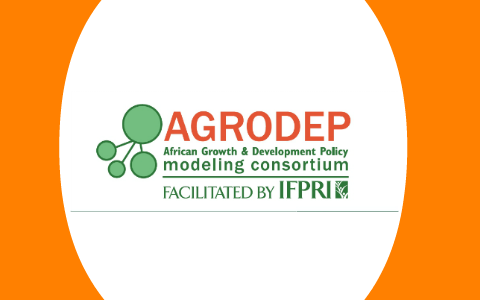
The Structural Transformation of African Agriculture and Rural Spaces (STAARS) fellowship program, a multi-institution collaboration managed by Cornell University with support from the CGIAR Research Program on Policies, Institutions, and Markets (PIM), announces a call for concept proposals from early-career African researchers seeking to become STAARS fellows in 2020 to advance in-depth, rigorous, policy-oriented research on the causal determinants of productivity and income growth, asset accumulation, rural employment and risk management in African agriculture and rural spaces. Application deadline: January 24, 2020.
The fellowship will cover travel and training expenses. STAARS fellows will be paired with mentors at Cornell University with whom they will jointly author a paper on a topic of mutual interest relating to structural transformation in Africa south of the Sahara. PIM will support the publication of resulting research findings in high quality journals and as working papers. In addition, PIM and Cornell will facilitate fellows’ participation in scientific and policy conferences.
Scope of research and geographic focus
Prospective STAARS fellows are invited to develop proposals in the following thematic areas:
- Dynamics of agriculture input use, technological change, and productivity growth in Africa south of the Sahara.
- Rural factor market performance, labor exits and productivity in sub-Saharan Africa.
- Food security, nutrition and health linkages in sub-Saharan Africa.
- Poverty dynamics and resilience against shocks in sub-Saharan Africa.
STAARS fellows’ rigorous policy analysis should use existing data, such as the Living Standards Measurement Study – Integrated Surveys on Agriculture (LSMS-ISA), Demographic and Health Surveys or similar high-quality datasets from sub-Saharan Africa.
Eligibility
The call is open for early career African researchers, either Ph.D. students in their final year or those who completed their Ph.D. in 2015 or later. Priority is given to researchers who are African nationals based and working in – or soon returning to – Africa, with priority given to proposals relating to the research themes indicated above. Qualified female researchers are particularly encouraged to apply. STAARS encourages applications from fresh Ph.D. graduates who can benefit from a mentorship and additional training to become highly competent researchers. Fellows are expected to complete the proposed project by publishing findings as a working paper and submitting to a peer-reviewed journal by December 15, 2020.
Researchers are expected to be familiar with existing data sets and have a strong working knowledge of Stata, R or other econometric software and an interest in econometric analysis of high-quality data sets. Knowledge of Stata and/or R will be assessed at the finalist stage.
Funding
The selected applicants will receive funds to cover travel and participation in a three-week mentorship program at Cornell University.
The proposed research and capacity development are expected to be undertaken as part of an ongoing effort by the scholar; STAARS will not cover the scholar’s time allocated to this research. A written permission from the candidate’s supervisor will be required. The program cannot support costs for any new data collection.
Application process
The STAARS fellowship application process is managed by Cornell University, in collaboration with PIM. Applicants are required to prepare a maximum 2500-word concept proposal, which motivates the selected research issues and objectives, outlines data sources, proposed methodology and contains a convincing plan for completing the project by December 15, 2020. All proposals shall be prepared in English. All proposals will be peer reviewed by experts from Cornell University and/or PIM.
Template for preparation of concept proposal
- Completed 2020 STAARS Fellowship Applicant Information Form.
- Concept Proposal:
- Title of the proposed research
- Targeted country (countries)
- Introduction and motivation that includes clear statement of research objectives and hypotheses
- Description of data sources(s) and any prior experience working with the proposed data
- Proposed methodology
- If applicable, summarize any preliminary results
- Proposed timeline for the research
- Bibliographic references (not included in the 2500 words)
- CV of the applicant (not included in the 2500 words)
- Photocopy of passport biodata page and, if applicable, any current US visa.
More information at: https://pim.cgiar.org/2019/12/16/staars-fellowship-program-2020-call-for-proposals/
You can find more blog posts in the AGRODEP blog.
Best Regards,
AGRODEP team





